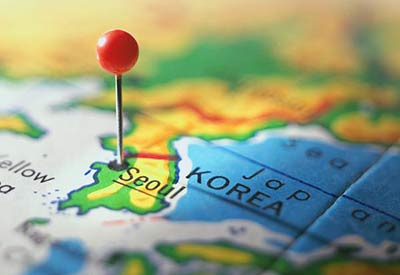South Korea: Now’s the Time To Build Relationships

Now is the time for Canadian businesses to consider getting in on the export action in South Korea. The South Korean economy grew by 2.8% in 2013. “If Canadian companies want to remain competitive, now is the time to begin building relationships in the region and consider business opportunities before the market gets oversaturated,” says Mark Bolger, Chief Representative for Asia, Export Development Canada (EDC).
Now is the time for Canadian businesses to consider getting in on the export action in South Korea.
Despite a booming economy South Korea isn’t always top of mind as a key export destination for Canadian business; but maybe it should be. While China, India and Japan get all the buzz, the South Korean economy grew by 2.8% in 2013. And though the South Korean market is competitive, it’s also less saturated than other popular Asian markets.
“If Canadian companies want to remain competitive, now is the time to begin building relationships in the region and consider business opportunities before the market gets oversaturated,” says Mark Bolger, Chief Representative for Asia, Export Development Canada (EDC). “South Korea is looking for suppliers in industries where Canada has a lot to offer; primarily manufacturing, agriculture and energy.”
“The South Korean economy is dominated by large, export-oriented conglomerates, called chaebols,” says Richard Dubuc, Minister-Counsellor, Commercial Affaires, Canadian Trade Commission to Seoul. “These large multinationals own many other international enterprises and their supply chains can offer a lot of opportunities for Canadian companies. The country’s proximity to markets such as China and Japan also provides a good launch pad for Canadian companies to penetrate these large markets.”
More to the point, South Korea is highly dependent on imports. In 2013, Canadian exports to Korea reached $3.5 billion, primarily mineral fuels and oils, wood pulp, non-durum wheat, frozen pork, canola oil, lobster, and bovine hides. The new Canada-Korea Free Trade Agreement (FTA) should help grow business further as South Korea has agreed to phase out over 80& of tariffs on exports from Canada, including automotive parts and energy. Many of these cost reductions could come into effect within a year.
Benefits of this agreement go beyond the cost savings in tariffs. It could also position Canadian on a level playing field with nations that already hold trade agreements with South Korea such as the U.S., Europe and Australia.
Furthermore, the South Korean government has made it a priority to become one of the top 10 business friendly economies in the world. To that effect, they are already offering foreign buyers expanded tax deductions for business investments in some areas.
Velan: Developing a local presence in South Korea is key
When Montreal-based Velan decided to try exporting to South Korea they found a local purchaser to help find customers. Velan develops valves for industrial use, such as submarines, nickel mines, nuclear plants and oil refineries.
Export Development Canada (EDC) began working with Velan in the early 1980s, providing insurance and guaranteeing their investments into new markets to help expand their international footprint. Currently, almost 90% of the company’s sales are from exports and their precision-crafted steel valves are in more than 60 countries.
They were first drawn to South Korea in 1988 because of low production costs and accessibility to other Asian markets. Since then, business has expanded significantly. To service their customers better, they eventually opened a manufacturing facility in the country.
“South Koreans like to buy locally manufactured products,” says Joe Calebrese, Senior Director of Sales for Asian Markets at Velan. “They like to be able to see what they’re getting and where it’s being developed, so it’s important to have a presence there.
When Velan decided to try exporting to South Korea, the company found a local purchaser to help find customers. After some success, Velan decided to build a local manufacturing facility to service the market. This year, Velan opened their third production plant in the region in order to remain competitive with continued market demand.
“Finding local agents you’re comfortable with can take some time, but it’s worth the investment,” notes Calebrese.
Most South Koreans also prefer face time with their business partners in order to cultivate a relationship, so companies are more likely to win a contract when they meet in person. As a result, many businesses find it invaluable to have some form of local representation to help them stay competitive.
“Consider finding a manufacturer’s representative, distributor, naming a registered trading company as an agent or establishing a branch sales office in the region,” adds Dubuc.
“Starting a business in Korea can be time-consuming but finding the right local partner is pivotal,” he adds. We recommend that Canadian companies contact the Trade Commissioners Service at an early stage so we can help match their business with qualified partners or potential buyers/importers.”
“South Korea a very fast moving market,” adds Calebrese, “but it keeps things interesting.”
For more on finding a local agent, click here.
Adapted from an online post by Caroline Elie for Export Development Canada.










